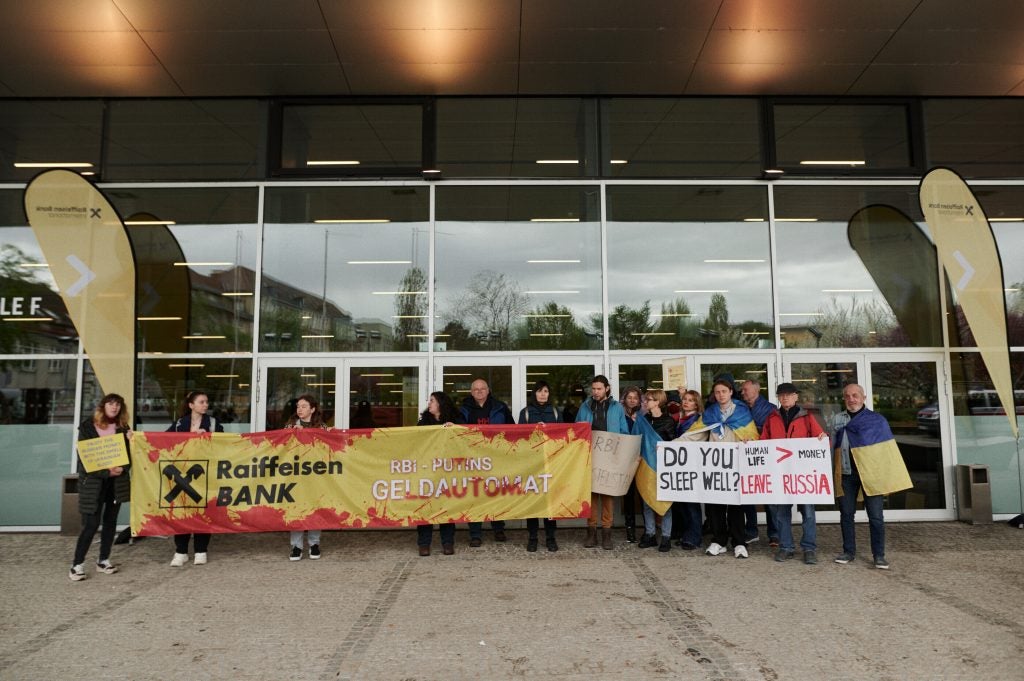
Andy Page has over 30 years’ experience in asset and automotive funding and is the sales and marketing lead for Sofico UK, a Belgium-based provider of software for automotive finance, leasing, fleet, and mobility management companies. Here Andy considers some parallels between individuals suffering from long Covid and the hardships endured by UK small businesses following the outset of the pandemic. He also offers a way forward for financiers and SMEs alike.
A symptom tracking app run by King’s College London has shown that up to 500,000 people in the UK are currently suffering from the long-term effects of Covid-19.
The North Bristol NHS Trust’s Discover project, which has been studying the longer-term effects of coronavirus, found that out of a total of 110 patients given a three-month check-up, about 70% still had at least one persistent symptom after twelve weeks. The most common of these were excessive fatigue, breathlessness and insomnia.
Covid’s business impact
But Covid not only impacted the human population it had an immediate and, in some cases, long-standing effect on businesses.
The UK government provided financial aid to businesses disrupted, notably through the state-owned British Business Bank which managed the provision of financial support through accredited intermediaries. This support came in the form of credit facilities such as the Coronavirus Business Interruption Loan Scheme (CBILS) which was worth up to £5m per application.
CBILS was made available through a range of accredited lenders who provided support in the form of term loans, overdrafts, invoices or asset financing. As of 31 May 2021, £26.39bn of loans had been provided and 110,000 applications for support approved.
How well do you really know your competitors?
Access the most comprehensive Company Profiles on the market, powered by GlobalData. Save hours of research. Gain competitive edge.

Thank you!
Your download email will arrive shortly
Not ready to buy yet? Download a free sample
We are confident about the unique quality of our Company Profiles. However, we want you to make the most beneficial decision for your business, so we offer a free sample that you can download by submitting the below form
By GlobalDataA Bank of England report published in October 2020, concluded that Covid-19 had had a much bigger impact on smaller companies than larger ones. State-backed schemes such as CBILS have supported cash flows, but the outlook is uncertain and in the longer term there could still be business disruptions or insolvencies.
More than 95% of UK businesses are small and medium-sized enterprises (SMEs) with fewer than 250 employees. They account for around 45% of total revenues and around 60% of private-sector employment in the UK.
Smaller companies are more likely than larger companies to operate in sectors that have been most affected by the pandemic shock, such as hospitality, the arts, leisure and construction.
These SMEs need to have resilience planning and actions in place. Many of their staff will be equipped and experienced with home/hybrid working which will certainly be a legacy from Covid. They should also be looking at their liquidity and working capital line availability to cover any similar future shocks to cashflow.
Providing the providers
It is also the finance companies that provide these lines of credit that equally suffered shock and also need to prepare. It is reported a UK captive OEM finance company was contacted by around half of its customer base at the start of Covid-19 requesting payment relief in some way. This led to the manual amendment of approximately 8,000 customer contracts as they had no automated process in place and took months of time to complete.
How well placed are UK financiers in the event of another downturn? Number one on the agenda for both business customers and their financiers should be their digital transformation or virtualisation. Bringing processes online both creates efficiencies and allows for the better handling of any future spikes in customer service requests.
We now also live in the age of ‘hyperconnectivity’ where in January 2020 a UK government report showed that 96% of households in Great Britain had internet access, up from 57% in 2006 when comparable records began.
The same report showed that 76% of UK adults used internet banking and 87% of adults shopped online. So, consumer expectation is that overwhelmingly the goods and services they want to access should be available online and at a time that suits them.
Going virtual
For financiers, this means moving to a virtual offering.
An industry study recorded an average contract hire life cycle from initial customer enquiry right through to contract close and remarketing including one standard customer service request and one contract modification can take as much as 705 minutes.
Taking the available annual working time as 220×8 hour days (1,760 hours), a leasing company can process as little as 150 of these contracts per employee per year. Virtualising the whole leasing company process which can include some complete automation has shown to reduce the contract life cycle to 140 minutes lifting the leasing company employee capacity to 750 contracts per year.
So, virtualisation can not only boost productivity but bring valuable capacity for finance companies to flex into in time of crisis. However, before anyone jumps into buying the first platform they can drop their business onto they need to carefully consider both which platform and supporting partner best fits their needs.
Like anything in life, you get what you pay for and the cheapest is generally never the best.
Before looking for solutions, remember that virtualising should also be centred around customer experience and this is an opportunity to specify a platform wholly aimed at 5-star customer (and any partner) satisfaction. A quick and simple fixed solution will mean your business processes will inevitably have to be reformed or curtailed to fit and likely inconvenience the customer with new processes and reduced offers.
Adopting a more flexible solution will allow the platform to be tailor-made (or configured) to exactly match your current processes. Better still these should give capacity and ability to future-proof your business by enabling new offers and methods of delivery such as mobile or cloud-based services.
A key additional feature sought should be the ability to integrate with 3rd party plugins such as Know Your Customer validation to ensure you have accurate customer details to populate your offer with, credit services to access automatic credit approval, ability to accept open banking data and digital signature platforms to enable electronic signature and automate the payout process. The ability to bring in ‘best in class’ integrations will also allow you to offer the latest and smartest services for front to back-office processing.
For captive OEMs in particular, who will not have access to the cost of funds that the tier-one lenders will have, their customer experience is fundamental to their futures. Being able to deliver a seamless and simple funding solution along with the vehicle or equipment purchase can both excel the customer and greatly expedite OEM partner cashflow.
Choosing the right partner will also enable a supported implementation of a new platform and the tested migration of customer data. The ability to configure and integrate with 3rd parties also means that virtualisation (and the investment) can be staged and each step measured for return in productivity and customer experience.
None of this will come cheaply for sure, but carefully considered investment now will be better than the eradication of your business from disruptors, another macro crisis or a competitor just simply offering a slicker solution.
Retail turmoil and opportunity
Covid 19 has also accelerated and embedded change in the retail landscape potentially forever. The John Lewis Group is to become a residential landlord, with plans underway to convert existing shop premises into rental homes above or beside 20 of its existing Waitrose supermarkets around the UK.
This is part of the group plan to turn its first-ever full-year loss into profits of £400m within five years which also includes investing £1bn in its online services.
The John Lewis group has said it expects 40% of its profit to come from activities outside retail by 2030 and up to 60% of its sales to be online.
Covid-19 not only advanced change in homewares but also in food retailing. Consumers concerned about supermarket shortages, the risk of virus exposure and the environmental impact of the long-distance transport of food, have taken to their keyboards in search of home delivery of locally sourced foodstuffs.
In 2020 the home delivery of ‘Veg boxes’ grew sixfold in the UK and suppliers had to revamp their platforms with online queues and waiting lists for new customers.
In just two months, over 500 British veg box providers, with waiting lists ranging from 160 to 6,700 customers, delivered 3.5m boxes of fresh produce to homes.
Vehicle finance
The virus also made consumers reconsider the way they use and purchase transport. Concern over virus exposure bought a new or re-found value in personal transport and in the safety and the freedom this brings. This has bought a wave of new buyers into the car market too, who are now adept with home shopping, expect the same experience when purchasing transport.
A poll by What Car? recently revealed that 35% of nearly 9,000 buyers surveyed were happy to buy entirely online. Consumers now expect online configurators with pricing and financing offers all done within the safe confines of a virtual showroom. Driveway test drives and home delivery is already now widespread. Fiat Abarth has introduced a trial sending prospective 595 buyers Bose headphones and a virtual reality headset. This is pre-loaded with a three-minute film, taking viewers on a ‘virtual test drive’ through stunning Welsh vistas with co-driver and YouTube influencer Stef Vilaverde. SEAT and Skoda also offer VR car tours based on images of consumers own driveways.
The VR experience and vehicle configurators are both examples of integrations that finance companies can specify now or build into platform investment later with support from the OEMs.
Another must is the ability to also capture third party data from the likes of CAP HPi and other independent providers of vehicle specifications, pricing and emission data with the latter importantly bringing company car taxation detail.
Taxation is also driving the move away from company car use into personal financing supported by the employer or through salary sacrifice schemes.
Whereas commercial fleet and retail car financing used to be completely separate realms the shift away from company car use into supported personal leasing is blurring the two businesses and any future platform investment should recognise that and allow for retail customers wanting financing with add-on services such as built-in repair, maintenance and tyre replacement.
Lastly, before you stampede off to TRON-like digitise your business, think one last thought – Security.
It has been reported that SMEs in the UK are successfully hacked every 19 seconds with more than 60,000 hacking attempts per day. With fines of up to 4% of annual global revenues at stake – ensure whatever platform and partner you choose they cherish the protection of your data above all else.
Notes:
- https://www.dailymail.co.uk/news/article-8599223/Up-half-million-Britons-suffering-effects-long-Covid-MPs-told.html
- https://www.nbt.nhs.uk/research-innovation/our-research/current-research/covid-19-research/covid-19-discover-study
- https://www.gov.uk/government/collections/hm-treasury-coronavirus-covid-19-business-loan-scheme-statistics
- BankofEngland.CO.UK/bank-overground/2020/How-has-covid-19-affected-small-uk-companies
- Internet access – households and individuals, Great Britain – Office for National Statistics (ons.gov.uk)
- https://www.sofico.global/en/
- https://www.johnlewispartnership.co.uk/about/who-we-are/our-future.html
- https://www.bbc.com/future/bespoke/follow-the-food/how-covid-19-is-changing-food-shopping.html
- https://cardealermagazine.co.uk/publish/a-third-of-car-buyers-are-comfortable-buying-a-car-online-as-pandemic-shifts-consumer-behaviours/205993
- https://www.british-assessment.co.uk/insights/the-worst-data-breaches-in-history/







